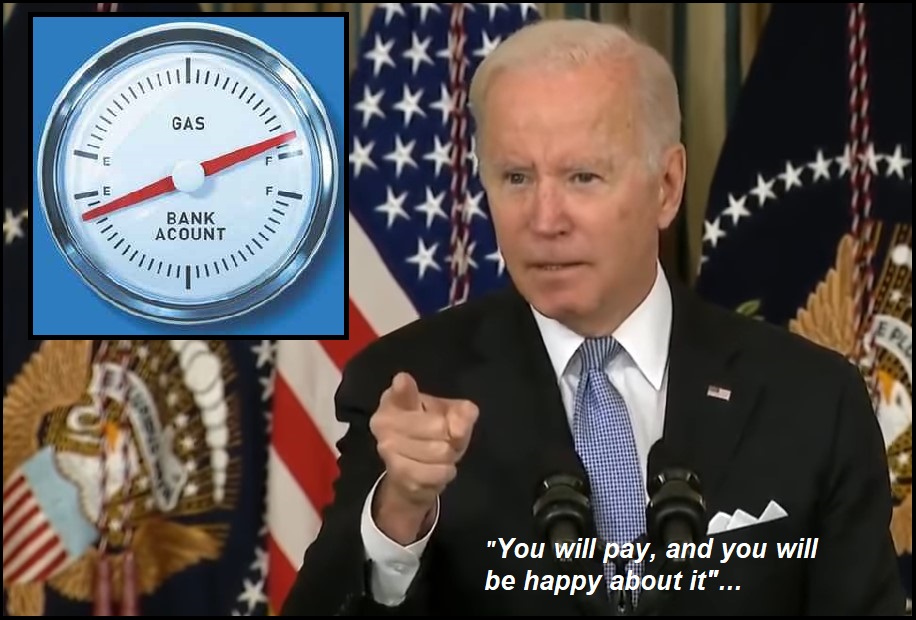Oil Prices Pass $112 Barrel, OPEC Holding Firm, Here Comes $7 Gasoline
Everything including oil, natural gas, wheat, and fertilizer is skyrocketing in price right now. Ten- and twenty-year records are being eclipsed, as energy prices are soaring on the back of oil flirting with $114 a barrel. Unfortunately, here comes more inflationary pain, and everything is being blamed on the Russia-Ukraine conflict.
 Toward the end of last year, we warned that fertilizer costs were going to harvest costs in 2022 (field to fork, go deep), long before Ukraine came into the picture. Unfortunately, future wheat prices reached $10.59 a bushel today, the highest since March 2008. Additionally, corn prices have passed their highest rate since December 2012.
Toward the end of last year, we warned that fertilizer costs were going to harvest costs in 2022 (field to fork, go deep), long before Ukraine came into the picture. Unfortunately, future wheat prices reached $10.59 a bushel today, the highest since March 2008. Additionally, corn prices have passed their highest rate since December 2012.
It may seem like those crops are not that important. However, keep in mind that corn, wheat and soybeans represent the baseline for not only grain production in the U.S, but they are also the primary feed products for proteins: chicken, pork and beef. We are going to feel this second wave surge at the grocery store. Hopefully everyone has prepped.
Additionally, oil prices have jumped to near eight-year highs. Brent crude, the global oil benchmark, rose as high as $113.94 a barrel, the highest since June 2014, and has been trading around $111 for most of the day. If you were paying $4/gal for gas, these oil rates add around another .50¢ today alone. Yes, you read that correctly, inbound tankers of gasoline will offload at your convenience store at a rate ten percent higher than yesterday.
Making matters worse, the Joe Biden energy policy -focused almost exclusively on green energy- is making any investment in domestic oil production tenuous at best. The major oil companies are wary of spending money for U.S. energy development in a climate where the U.S. government is specifically against that effort.
(WASHINGTON) – […] investors seem to be reluctant to invest in fossil fuel stocks. Major US oil stocks have lagged behind the broader market for most of the last two years, teaching executives a hard lesson: Use the recent windfalls to reward investors, not sink more wells.
“Oil and gas companies do not want to drill more,” said Pavel Molchanov, an analyst at Raymond James. “They are under pressure from the financial community to pay more dividends, to do more share buybacks instead of the proverbial ‘drill baby drill,’ which is the way they would have done things 10 years ago. Corporate strategy has fundamentally changed.”
To that end, while companies like ExxonMobil, Chevron, Marathon and Phillips 66 expect to spend more on exploration and other capital spending in 2022, none of those companies expect to hit 2019 spending levels. (read more)
 This economic pain is being intentionally inflicted on a national and international level. This is a feature, not a flaw, in the ideological quest for a “Build Back Better” society, or in the words of the World Economic Forum, “The Great Reset.”
This economic pain is being intentionally inflicted on a national and international level. This is a feature, not a flaw, in the ideological quest for a “Build Back Better” society, or in the words of the World Economic Forum, “The Great Reset.”
The use of the Russia-Ukraine conflict is the purposeful deployment of a distraction and justification for economic hardships that have little to do with Ukraine or Russia. We were on this path long before Ukraine entered the picture. Global government, including our own, are using the Ukraine crisis as an excuse for an energy based economic outcome they created.
The multinational corporations who drive WEF financial policy, are targeting the policy of government. From their corporate perspective, this is all a simple matter of increasing income. This is a very bad scenario right now.
Fascism was traditionally defined as an authoritarian government working hand-in-glove with corporations to achieve objectives. A centralized autocratic government, headed by a dictatorial leader, using severe economic and social regimentation and forcible suppression of opposition.
The World Economic Forum (WEF) was created to use the same fundamental associations of government and corporations. Only this time, it was the multinational corporations who organized to tell the government(s) what to do. The WEF was organized for multinational corporations to assemble and tell the various governments how to cooperate with them, in order to be rewarded by them. Corporatism was/is the outcome. The government is now doing what the multinationals tell them to do, and in return, the multinationals install the compliant politicians.
Fascism, the cooperation between government and corporations, is still the underlying premise; the World Economic Forum simply flipped the internal dynamic putting the corporations in charge of handing out the instructions.
What results is a slightly modified definition of fascism:
…A massive multinational corporate conglomerate, telling a centralized autocratic government leader what to do, and using severe economic and social regimentation as a control mechanism, combined with forcible suppression of opposition by both the corporations and government.
Doesn’t that define our current reality?
The instructions from the multinational corporations to government would be called the “Great Reset“, or as commonly transposed by the government officials receiving the instructions, “Build Back Better”.





Post a Comment